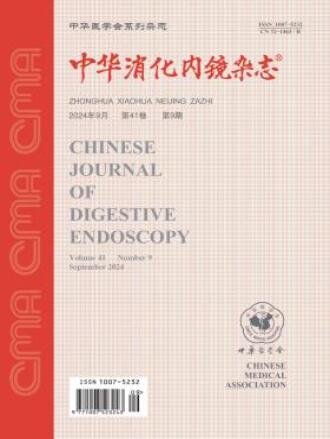Feasibility of bowel preparation before colonoscopy in endoscopic ambulatory surgery ward
引用次数: 0
Abstract
Objective To investigate feasibility of bowel preparation for colonoscopy in endoscopic ambulatory surgery ward. Methods A total of 352 patients at endoscopic ambulatory surgery ward receiving colonoscopy at Zhongshan Hospital, Fudan University from May 25, 2018 to July 13, 2018 were surveyed by questionnaires. Data of 344 patients, including patient demographics, bowel preparation information and Boston bowel preparation scores and subjective perception of patients were analyzed. Data of 8 others were excluded because they did not complete colonoscopy for the first time due to failure of bowel preparation. Chi-square test and logistic regression analysis were conducted to analyze the quality of bowel preparation and its influencing factors. Results A total of 18.0%(62/344) of bowel preparations were inadequate. Morning colonoscopy (P=0.005, OR=2.505, 95%CI: 1.312-4.781) and yellow residual last stool before colonoscopy (P=0.045, OR=0.475, 95%CI: 0.230-0.982) were independent risk factors for inadequate bowel preparation. Patients' tolerance was 88.1%(303/344), satisfaction was 77.9%(268/344), and 54.9%(189/344) were willing to be hospitalized in ambulatory surgery ward again if necessary. Conclusion Bowel preparation before colonoscopy in endoscopic ambulatory surgery ward is feasible but not optimal. Key words: Colonoscopy; Ambulatory surgery ward; Bowel Preparation内镜门诊病房结肠镜检查前肠道准备的可行性
目的探讨内镜门诊病房结肠镜检查前肠道准备的可行性。方法对2018年5月25日至7月13日在复旦大学中山医院内镜门诊病房接受结肠镜检查的352例患者进行问卷调查。分析344例患者的数据,包括患者人口统计学、肠准备信息和波士顿肠准备评分以及患者的主观感知。另有8例因肠道准备失败未完成首次结肠镜检查而被排除。采用卡方检验和logistic回归分析分析肠道准备质量及其影响因素。结果18.0%(62/344)患者的肠道准备不充分。晨间结肠镜检查(P=0.005, OR=2.505, 95%CI: 1.311 ~ 4.781)和结肠镜检查前末便黄色残留(P=0.045, OR=0.475, 95%CI: 0.230 ~ 0.982)是肠道准备不充分的独立危险因素。患者耐受性为88.1%(303/344),满意度为77.9%(268/344),必要时愿意再次入住门诊外科病房的患者占54.9%(189/344)。结论内镜门诊病房结肠镜检查前肠道准备是可行的,但并非最佳选择。关键词:结肠镜检查;流动外科病房;肠道准备
本文章由计算机程序翻译,如有差异,请以英文原文为准。
求助全文
约1分钟内获得全文
求助全文
来源期刊
CiteScore
0.10
自引率
0.00%
发文量
7555
期刊介绍:
Chinese Journal of Digestive Endoscopy is a high-level medical academic journal specializing in digestive endoscopy, which was renamed Chinese Journal of Digestive Endoscopy in August 1996 from Endoscopy.
Chinese Journal of Digestive Endoscopy mainly reports the leading scientific research results of esophagoscopy, gastroscopy, duodenoscopy, choledochoscopy, laparoscopy, colorectoscopy, small enteroscopy, sigmoidoscopy, etc. and the progress of their equipments and technologies at home and abroad, as well as the clinical diagnosis and treatment experience.
The main columns are: treatises, abstracts of treatises, clinical reports, technical exchanges, special case reports and endoscopic complications.
The target readers are digestive system diseases and digestive endoscopy workers who are engaged in medical treatment, teaching and scientific research.
Chinese Journal of Digestive Endoscopy has been indexed by ISTIC, PKU, CSAD, WPRIM.

 求助内容:
求助内容: 应助结果提醒方式:
应助结果提醒方式:


